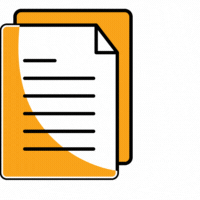Hubungan Pengetahuan dengan Sikap SADARI (Pemeriksaan Payudara Sendiri) pada Remaja Putri
The Correlation between Knowledge and Attitudes Young Women about Breast Self-Examination (BSE)
DOI:
https://doi.org/10.35473/ijm.v6i2.2581Keywords:
relationship, knowledge, attitudes, Breast Self-Examination (BSE), young womenAbstract
The number of breast cancer cases is ranked second after cervical cancer, the most common among women in the world. A survey conducted by WHO stated that 8-9% of women suffer from breast cancer. Breast self-examination is very important because almost 85% of breast lumps are discovered by sufferers themselves. This method is very simple, but it is hoped that it can reduce the high number of breast cancer sufferers, because the earlier it is detected, the faster the treatment process is needed. BSE is an important thing for teenagers to know to help teenagers carry out early detection of breast cancer. Good knowledge about BSE can help teenagers have a positive attitude towards themselves. The aim of the research is to determine the relationship between knowledge and BSE attitudes in young women. The population of female students at SMK "S" in Temanggung was 35 respondents. The sampling technique used was Accidental Sampling of 29 respondents. Data analysis used frequency distribution and Chi Square test. The research results showed that there was nocorrelation between knowledge and BSE (p value > 0.05).
Abstrak
Jumlah kasus kanker payudara menduduki peringkat kedua setelah kanker serviks yang paling banyak diderita wanita di dunia. Survei yang dilakukan WHO menyatakan 8–9% wanita mengalami kanker payudara. Pemeriksaan payudara sendiri sangat penting untuk dilakukan karena hampir 85% benjolan di payudara ditemukan oleh penderita sendiri. Metode ini sangat sederhana, namun diharapkan dapat menekan tingginya angka penderita kanker payudara, karena semakin awal terdeteksi maka semakin cepat proses pengobatan yang diperlukan. SADARI menjadi hal yang penting untuk diketahui oleh remaja untuk membantu remaja melakukan deteksi dini dari kanker payudara. Pengetahuan yang baik mengenai SADARI dapat membantu remaja mempunyai sikap yang positif terhadap dirinya. Tujuan penelitiannya yaitu untuk mengetahui hubungan antara pengetahuan dengan sikap SADARI pada remaja putri. Populasinya siswi SMK “S” di Temanggung sebanyak 35 responden. Tehnik sampling yang digunakan adalah accidental sampling, sebanyak 29 responden. Analisis data menggunakan distribusi frekuensi dan uji Chi Square. Hasil penelitian didapatkan bahwa tidak terdapat hubungan antara pengetahuan dengan sikap SADARI (p value > 0,05)
Downloads
References
Arikunto, S. (2010). Prosedur Penelitian Suatu Pendekatan Praktik. Rineka Cipta.
Dewi, A. W. dan. (2010). Teori dan Pengukuran Pengetahuan, Sikap dan Perilaku Manusia. Nuha Medika.
Donsu, J. D. (2017). Psikologi Keperawatan. Pustaka Baru Press.
Hapsari Windayanti, Eka Adimayanti, D. S. (2023). Pengetahuan Remaja Putri tentang Pemeriksaan Payudara Sendiri (SADARI). Indonesian Journal of Midwifery (IJM), 6, 17–23.
Indriawan, T., & Kusumaningrum, T. A. I. (2021). Efektifkah Pendidikan Kesehatan Reproduksi Remaja oleh Teman Sebaya? Griya Widya: Journal of Sexual and Reproductive Health, 1(1), 14–26. https://doi.org/10.53088/griyawidya.v1i1.247
Informasi, P. D. dan. (2015). Buletin Jendela Data dan informasi Kesehatan.
Jemal A, Bray F, Center MM, Ferlay J, Ward E, F. D. (2011). Global cancer statistics. In CA Cancer J Clin.
Kemenkes RI. (2010). Hasil Riset Kesehatan Dasar.
Luluk Maisyaroh, S. H. (2019). Pengaruh Health Education Tentang Pemeriksaan Payudara Sendiri (SADARI) Terhadap Pengetahuan Dan Motivasi Melakukan SADARI Pada Remaja Putri Kelas X Di MAN 1 SLEMAN Yogyakarta. Jurnal Kesehatan Samodra Ilmu, 10(2), 152–166.
Manuaba, IAC., I Bagus, dan I. G. (2010). Ilmu Kebidanan, Penyakit Kandungan dan KB untuk Pendidikan Bidan. Edisi kedua. EGC.
Marsia, M., Sulistyawati, D., Juniartati, E., & Akhmad, A. N. (2022). Psikoedukasi Pemeriksaan Payudara Sendiri (SADARI) dalam Mendeteksi Kanker Payudara pada Remaja Putri. Poltekita: Jurnal Pengabdian Masyarakat, 3(3), 371–378. https://doi.org/10.33860/pjpm.v3i3.944
Masruroh, H. W. (2022). Health Education To Improve The Motivation Of Young Women To Do Breast Self-Examination (Breaking). Jurnal Malahayati, 6, 320–326.
Mustikasari Pratama Kurnia, R., & Susanti, D. (2021). The Efforts of Breast Cancer Early Detection in Teenage Girls at Stikes Keluarga Bunda Jambi Midwifery Diploma Study Program at Level I. Jurnal Kesehatan Masyarakat, 6(1), 13–18.
Neng Lia Fitriani, S. A. (2015). Hubungan Antara Pengetahuan Dengan Sikap Anak Usia Sekolah Akhir (10-12 Tahun) Tentang Makanan Jajanan Di Sd Negeri Ii Tagog Apu Padalarang Kabupaten Bandung Barat Tahun 2015. Jurnal Pendiidikan Keperawatan Indonesia, 1(1), 7–26. https://doi.org/https://doi.org/10.17509/jpki.v1i1
Noer, R. M., Herawaty, N., & Suryadartiwi, W. (2021). Edukasi Sadari (Pemeriksaan Payudara Sendiri) Sebagai Deteksi Dini Pencegahan Kanker Payudara Pada Remaja Putri. Jurnal Masyarakat Mandiri, 5(2), 642–650. https://scholar.google.co.id/scholar?hl=en&as_sdt=0,5&q=Rasjidi,+I.+(2009).+Deteksi+dini+pencegahan+kanker+pada+wanita.+Edisi+I.+Jakarta:+Sagung+Seto.&btnG=
Notoatmodjo, S. (2014). Promosi Kesehatan dan Perilaku Kesehatan. Rineka Cipta.
Pagkatipunan, P. M. N. (2018). Peer leaders and phone prompts: Implications in the practice of breast care among college students. Asian Pacific Journal of Cancer Prevention, 19(5), 1201–1207. https://doi.org/10.22034/APJCP.2018.19.5.1201
Sarker, R., Islam, M. S., Moonajilin, M. S., Rahman, M., Gesesew, H. A., & Ward, P. R. (2022). Effectiveness of educational intervention on breast cancer knowledge and breast self-examination among female university students in Bangladesh: a pre-post quasi-experimental study. BMC Cancer, 22(1), 1–7. https://doi.org/10.1186/s12885-022-09311-y
Soekidjo Notoadmojo. (2012). Promosi Kesehatan dan Perilaku Kesehatan. Rineka Cipta.
WHO (World Health Organization). (2013). World Health Day 2013: Measure Your Blood Pressure, Reduce Your Risk.
Downloads
Published
How to Cite
Issue
Section
License
Copyright notice:
- Authors retain copyright and grant the journal right of first publication with the work simultaneously licensed under a Creative Commons Attribution License that allows others to share the work with an acknowledgement of the work's authorship and initial publication in this journal.
- Authors are able to enter into separate, additional contractual arrangements for the non-exclusive distribution of the journal's published version of the work (e.g., post it to an institutional repository or publish it in a book), with an acknowledgement of its initial publication in this journal.


